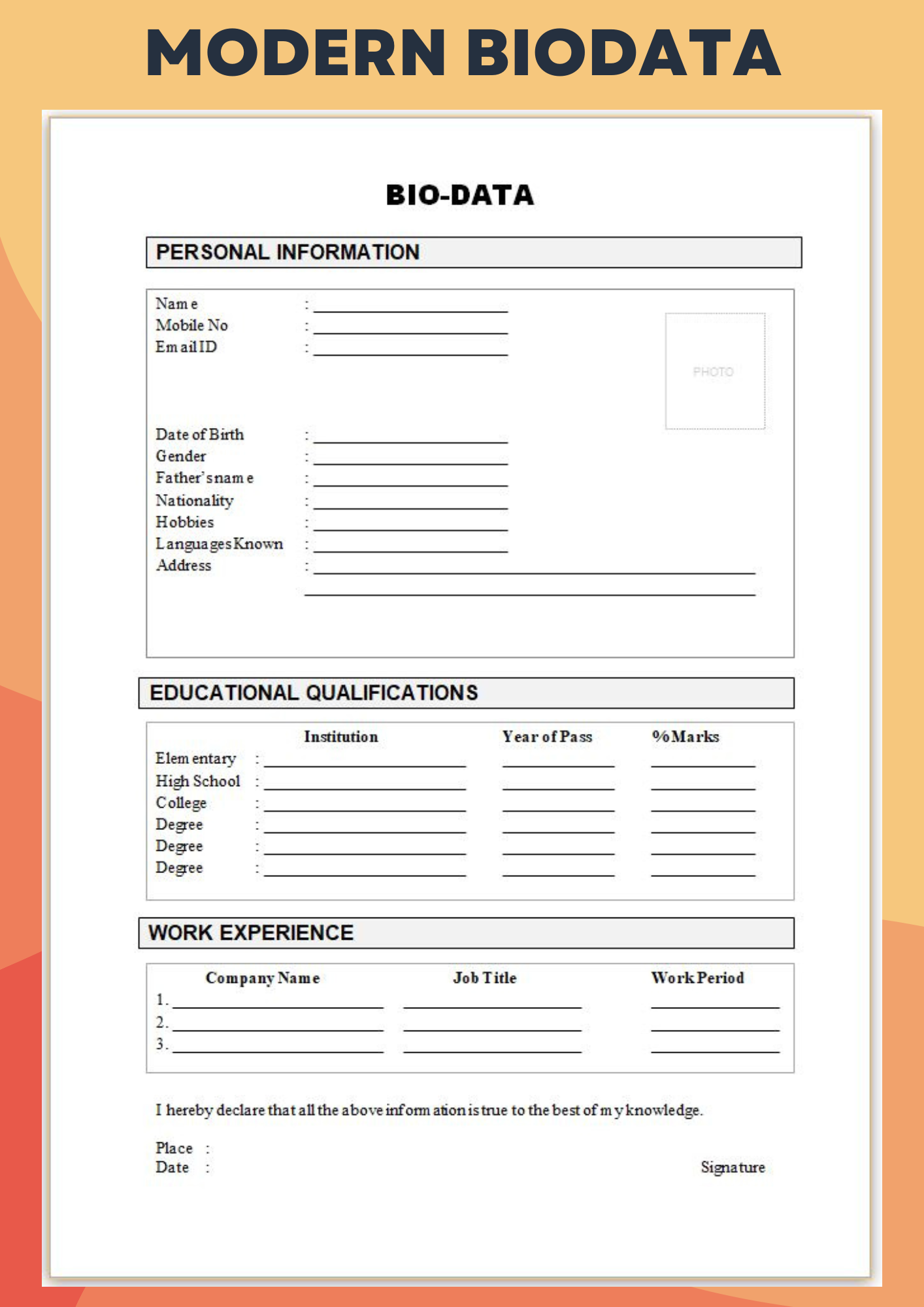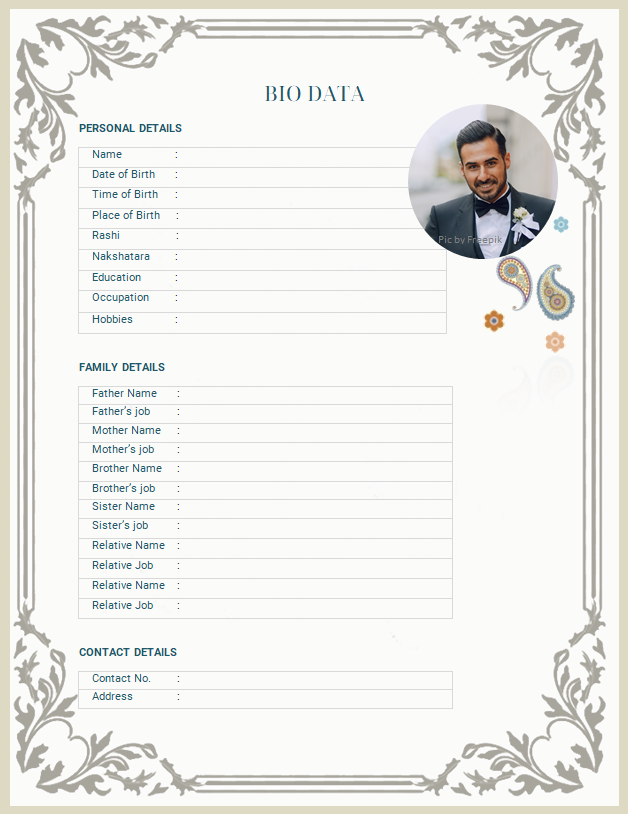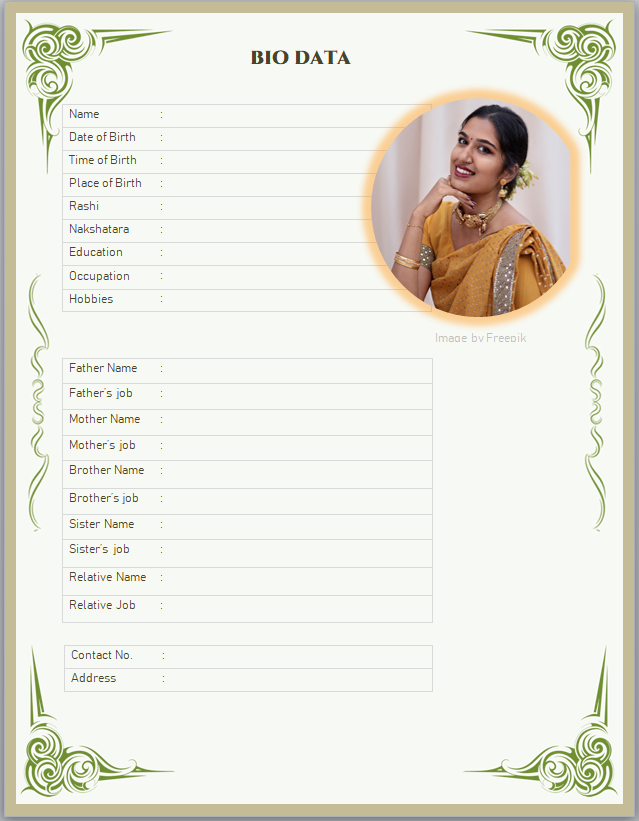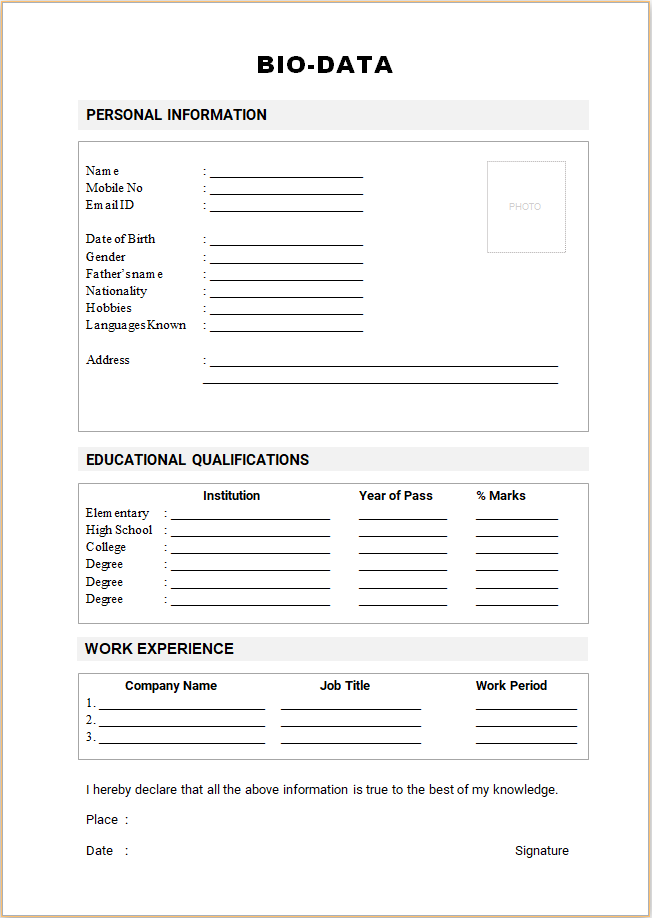Biodata format for job
Detailed biodata format for job

Biodata format
Ideally, your biodata for a job application, especially as a fresh graduate, should ideally be one page in length. Here's why:
Conciseness:
Employers often have to review numerous applications, and they appreciate concise and to-the-point documents. A one-page biodata ensures that you present your most relevant information without overwhelming the reader.
Focus on Key Information:
A shorter biodata encourages you to prioritize the most critical information, such as your education, skills, and relevant experiences. This helps to keep the reader's attention on what matters most for the job.
Ease of Reading:
Hiring managers typically spend a limited amount of time reviewing each application. A one-page biodata is easier to read quickly, increasing the likelihood that the employer will absorb the key details about your qualifications.
Relevance to the Job:
By limiting the length of your biodata, you are forced to include only information directly relevant to the position. This ensures that every detail you provide supports your candidacy for the specific job you're applying for.
Professionalism:
Keeping your biodata concise demonstrates your ability to communicate effectively and efficiently, a quality valued in many professional settings.
Encourages Tailoring:
A one-page biodata encourages you to tailor your application for each job. You can highlight the skills and experiences that align most closely with the requirements of the specific position, making your application more targeted and effective.
Adherence to Standards:
Traditionally, one-page resumes or biodatas have been the standard, especially for entry-level positions. While guidelines may vary by industry and country, a one-page biodata is a safe and widely accepted practice.
Keep in mind that the goal of your biodata is to capture the employer's interest and prompt them to invite you for an interview. Providing a concise, well-organized, and relevant one-page document increases the likelihood that your application will be positively received. If you find it challenging to fit all your information on one page, prioritize the most impactful and relevant details while ensuring readability.
Additional Inputs
If you're a fresh graduate without much work experience, you can focus on other sections of your biodata to highlight your qualifications and potential. Here are some sections and details you can include:
Educational Background:
Start with your educational qualifications. Include the name of the institution, degree earned, major, graduation date, and any relevant academic achievements or honors.
Skills:
Highlight your skills, both technical and soft. Consider skills you've gained through coursework, projects, or extracurricular activities. Tailor these skills to match the requirements of the job you're applying for.
Projects and Assignments:
Create a section for academic projects, assignments, or coursework that is relevant to the job. Describe the projects, your role, and the skills you developed or applied.
Internships or Volunteer Experience:
If you have completed any internships or volunteered, even if they are not directly related to your field, include them. Highlight the skills and experiences gained during these opportunities.
Leadership and Extracurricular Activities:
Showcase any leadership roles or involvement in extracurricular activities. This could include participation in student organizations, clubs, or community service.
Certifications and Training:
List any relevant certifications, workshops, or training programs you have completed. This can demonstrate your commitment to continuous learning.
Languages:
If you are proficient in multiple languages, mention them in a dedicated section.
Professional Summary or Objective:
Craft a brief professional summary or objective statement that communicates your career goals, skills, and what you bring to the table.
Relevant Coursework:
Consider adding a section on relevant coursework if you've taken classes that directly relate to the job you're applying for.
Technical Proficiency:
If the job requires specific technical skills, create a section to showcase your proficiency in relevant software, programming languages, or tools.
Networking and Online Presence:
Include a link to your LinkedIn profile if you have one. Ensure that your LinkedIn profile is complete and aligns with the information on your biodata.


